#jack flanagan
Text
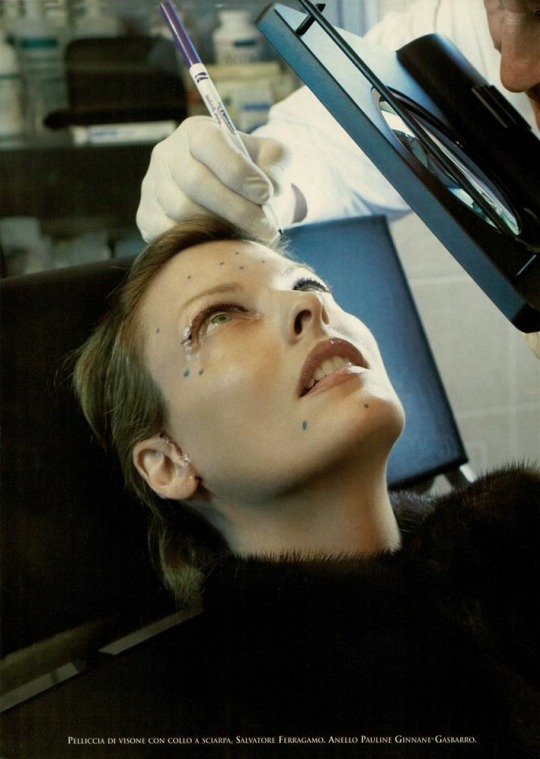

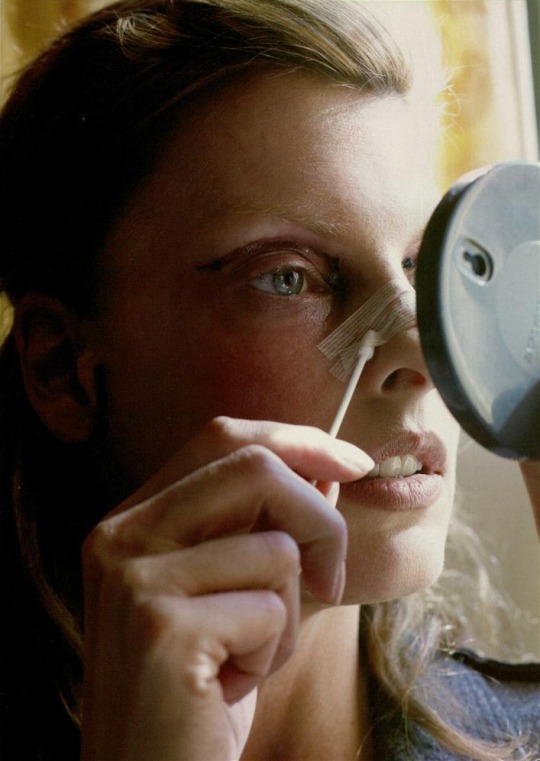
Linda Evangelista for Vogue Italia August 2005 “Makeover Madness”
Photographer Steven Meisel
Fashion Editor/Stylist Edward Enninful
Makeup Artist Pat McGrath
Hair Stylist Guido Palau
Set Designer Jack Flanagan
Casting Directors Ashley Brokaw & Maya Marzolf
Newest Cool
#newestcool#newest cool#makeover madness#vogue italia#italian vogue#vogue italy#vogue editorial#90s vogue#linda evangelista#Steven meisel#Steven meisel photography#Edward enninful#pat mcgrath#guido palau#jack flanagan#Ashley Brokaw#Maya marzolf#fashion editorials#fashion edit#fashion editorial shoot#fashion editorial#fashion editorial magazine#fashion photograph#90s runway#90s look#90s model#90s editorial#supermodel era#supermodel status#original supermodel
64 notes
·
View notes
Text

7 notes
·
View notes
Photo
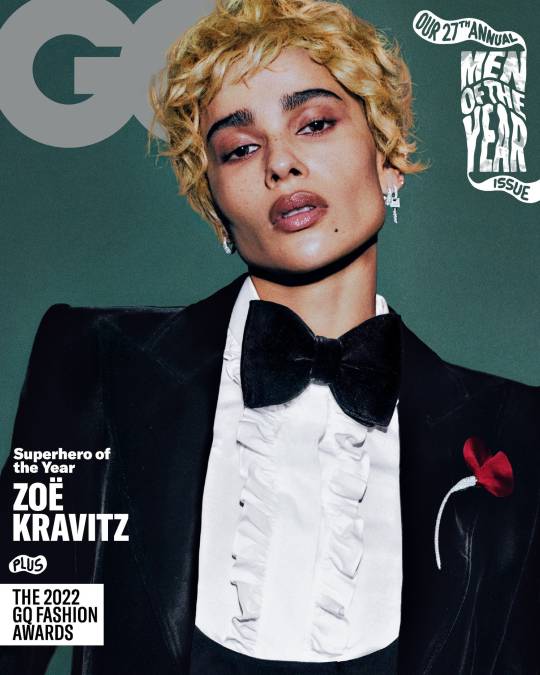


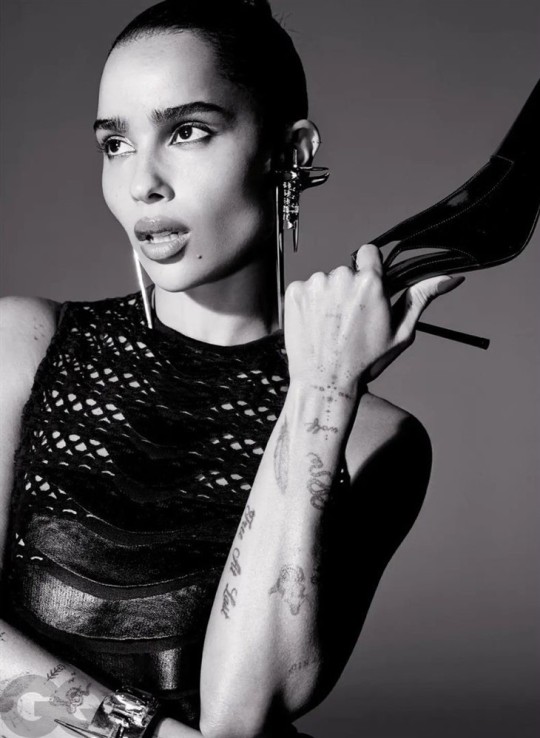
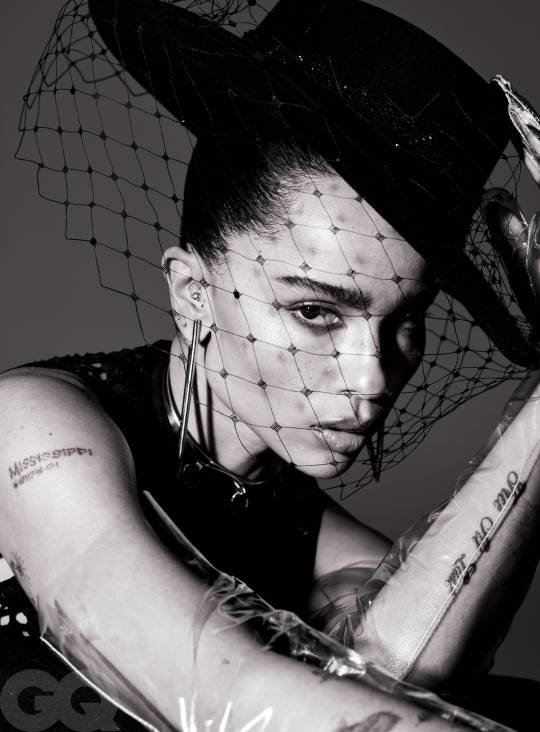


GQ Magazine’s 27th Annual Men Of The Year Issue
Photography: Steven Klein
Model: Zoë Kravitz
Styling: B. Åkerlund
Hair: Nikki Nelms
Make-Up: Nina Park
Manicure: Aki Hirayama
Tailoring: Shirlee Idzakovich
Set design: Jack Flanagan
Production: Travis Kiewel
#4RomaRY#GQ Magazine#Steven Klein#Zoë Kravitz#B. Åkerlund#Nikki Nelms#Nina Park#Aki Hirayama#Shirlee Idzakovich#Jack Flanagan#Travis Kiewel
0 notes
Text
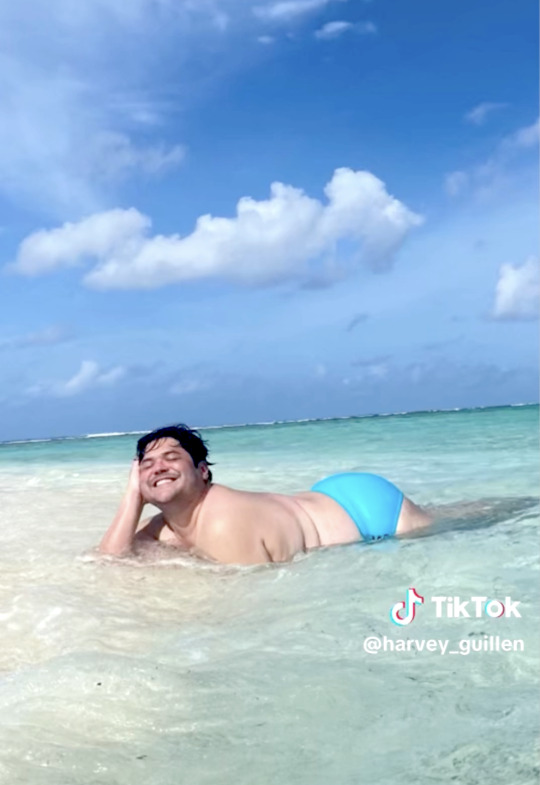
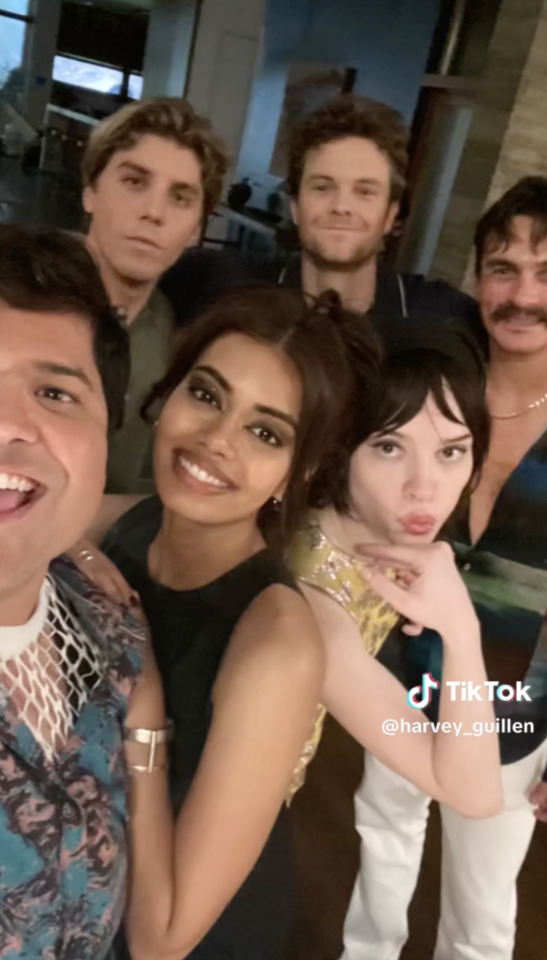
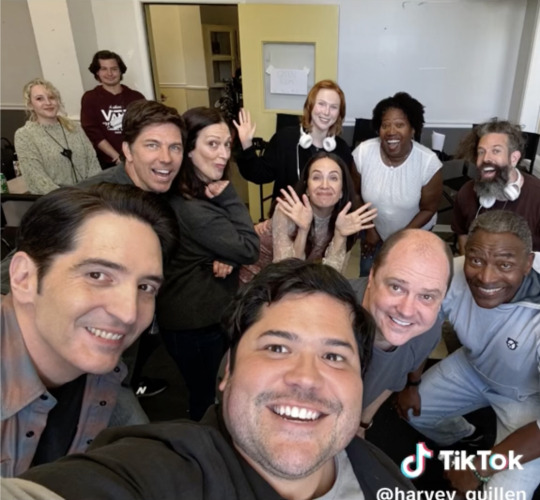
Harvey shared a recap of his jam-packed 2023! Including a radiant beach photo from his Maldives vacation, and behind the scenes photos with the cast and crew of his upcoming projects, Companion and The Life of Chuck.
#harvey guillén#harvey guillen#2023 recap#wwdits#guillermo de la cruz#beach#maldives#swimsuit#videos#lukas gage#megan suri#sophie thatcher#jack quaid#david dastmalchian#mike flanagan#january 2024
107 notes
·
View notes
Text
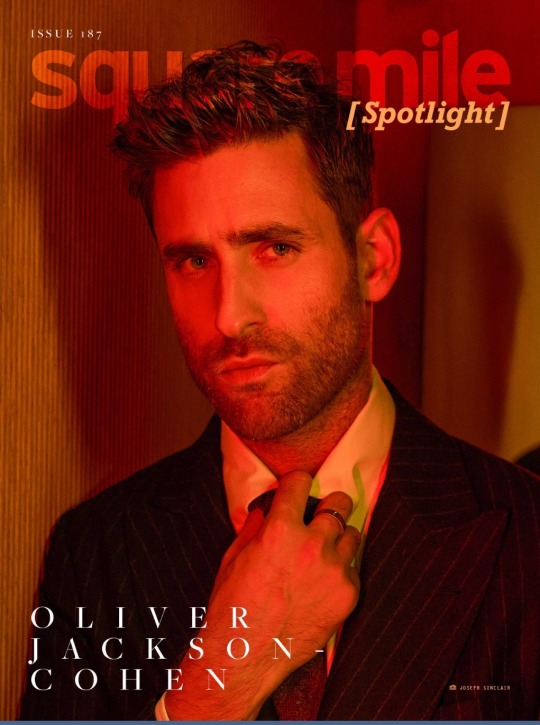
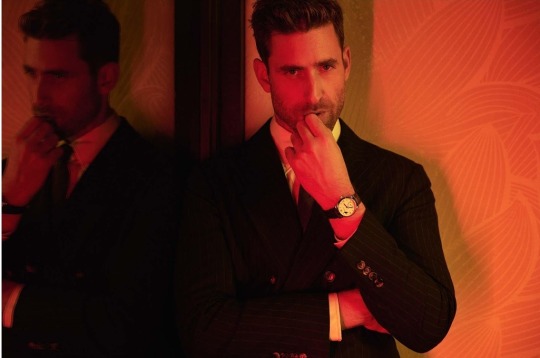

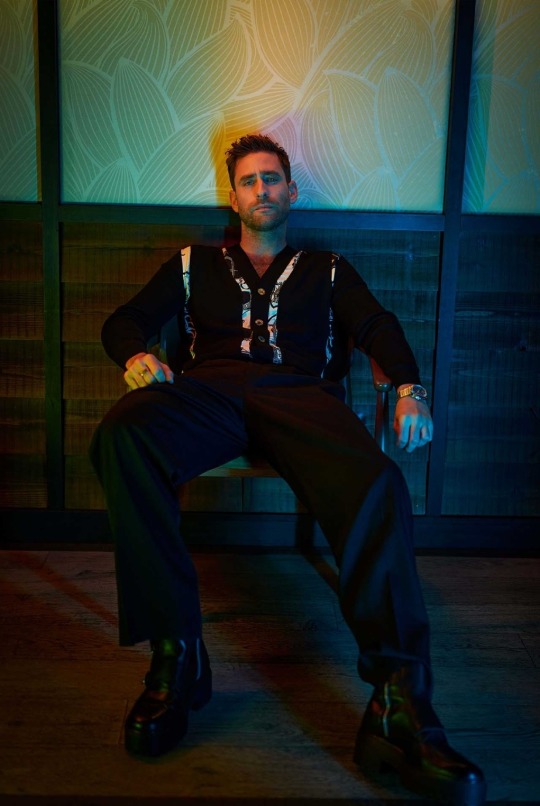
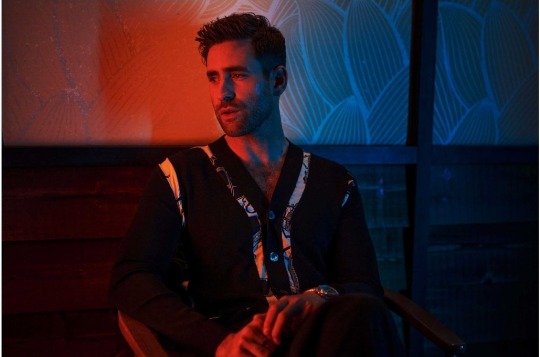

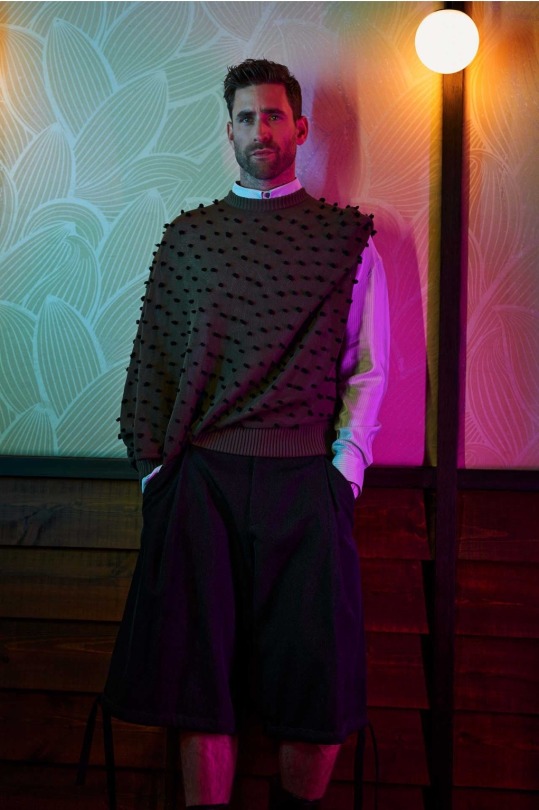

Few actors have endured as fraught a journey as Oliver Jackson-Cohen. Few actors are more in demand than the star of The Haunting of Hill House and Jackdaw
by Maeve Ryan
OLIVER JACKSON-COHEN HAS been doing this a while. He decided to act at the age of six. Joined a theatre troupe and began to climb. He continued until university but didn’t get into any drama schools. Throughout our conversation, he tells me there were no signs pointing him in this direction, no surefire chance at success. But he’s found it, and then some.
He rose to prominence with his highly acclaimed portrayal of Luke Crain in Mike Flanagan’s The Haunting of Hill House.
A character that battled a heroin addiction to cope with past traumas, though addiction was the least interesting thing about him. The show featured stars of the past, and launched new ones into the present, Oliver Jackson-Cohen being one of them. The role of Luke changed the course of his life – for more reasons than one.
It was the first time in his life he no longer had to hide, he tells me. “I could be as fragile as I felt.” He took his newfound Netflix fame and began to carve a path that finally aligned with who he was, not who the world wanted him to be.
Now, he takes centre stage in Jamie Dobb’s new film Jackdaw. When he read the script, he thought he was the last man for the job. When Dobb explained the hyper masculine lead needed someone to bring softness behind it, he signed on.
Jackson-Cohen’s career, and presence, proves that the strength of a man lies in his ability to go beyond society’s standards. He breaks the stereotypes like bread over a long conversation in Soho. We discuss his entrance into the industry, facing traumas, and finding a safe place to land.
sm: What was the first movie you ever saw that made you want to act?
o-jc: Home Alone. I remember seeing that film and saying, oh whoa, so a kid can do this? I remember telling my dad, ‘I think I want to do that.’ I was six or seven.
But it gets dark. So, my mum and dad’s house had a bay window that was on the street. And when I came home from school for a week, I just sat in the window thinking, any minute now, someone from Home Alone is going to walk past, and go, there’s a kid! Let’s get him! I was willingly wanting to get kidnapped. Which is so fucked. My dad came home and was like, ‘What are you doing?’ And then he was like, ‘Yeah, that’s not how that works.’
We found a theatre program – I started going there when I was eight. I was never the golden kid. In the drama clubs, I was always like the snake in the background. Or just the scenery. We used to put on terrible plays. I was such an insular kid. I found a safe place to feel where it’s real, but it’s not. So you can experience it all. I did that for three years, and then I was kicked out.
sm: What! Why?
oj-c: I had an attitude or something like that. I got suspended so many times. I genuinely was not looking for trouble. I was always the one to get caught. Like, I was the kid who someone handed the knife to, and I’d be standing above the dead body, and then the next thing I knew it was 20 years in prison. It was always stuff like that. But it was time to move on anyway.
I found this drama school at Riverside Studios. It was a small group, maybe eight or nine people. It was so interesting, because I’m going to do a gross name drop, but in the group was Carey Mulligan and Imogen Poots. It was incredible.
sm: Those were the kids that were just there? Did you have to audition?
oj-c: No, but I did a trial. It was a lot of devised stuff, like improv. A guy named Andrew Bradford ran it. He really supported kids. It was all day Saturday. We were all teenagers. It felt like another life. It grew and grew and by the time I left I was 17 or 18. It wasn’t one of those places that you were beaten down. No fake bullshit. It was a safe place to try stuff. We’d put on plays and we all got agents from that as kids.
sm: Is that the moment you look back on and think of as the beginning?
oj-c: I think so. But it was such a long period of time. Career wise, it was quite stagnant. I did one job when I was 15 that was some late night soap. Then I didn’t do anything until I was 18. I wasn’t like this is real until later. It started to snowball when I finished school. I went to get a French lit degree, hated it, dropped out, and applied to drama school. I didn’t get in anywhere.
In the meantime, there was a job at the BBC for a silly period drama. I did that, took the money, and went to do a foundation in New York at Strasberg.
sm: Tell me about the audition for drama school. You didn’t get in anywhere?
oj-c: Yes. I’m telling you there were no signs that pointed to me saying, yeah, you’re quite good at this. It felt like everyone was saying, ‘don’t do it.’ Which is a really interesting place to start from. If no one around me believes in me, how do I? And I just keep going? It was a mix of delusion and stupidity.
sm: Did you think about doing something else?
oj-c: When I was still in high school, I worked as a runner on productions, mainly at the BBC. I was revolving through that so when I finished school, that was kinda my job.. I got to see the inner workings of how sets worked, rehearsal periods. I got to see the writers and the actors, how they would construct a joke, and adjust things.
When I was 17, I started doing the European Music Awards. I would go and work in the costume department, I didn’t fucking know anything about how to sew on a bun but it was amazing. I got such a solid understanding of how a production office works, how a schedule works.
Tragically, you see a lot of how an actor is a small cog in this machine. Everyone is working so diligently. This whole idea of superiority that can go on, it was important for me to witness early on. Because when you go onto set and someone says five minutes, it actually means five minutes. But it was also hard because I was watching people do what I love. I didn’t get into school, so I said fuck it, I’m gonna do a foundation for a year and reapply to drama school from New York.
sm: Why choose the Strasberg program?
oj-c: Someone told me about it. I thought I needed to go do something that gives me a playground, a space in the meantime. But when I got there, I was with this small agency, and they started sending me out on auditions. The first or second one I went on, they flew me to LA to do a screen test and I got it. This was six weeks into the program. I was like: what do I do?
sm: What did you decide?
oj-c: There were three or four movies I got, but then the financial crash happened and it all fell apart. So I went back to New York to continue with the program. But meanwhile, I had been signed to WME and my agents were like, let’s go down the studio route because that’s going to be fun. I got an audition for this Drew Barrymore movie, got that, and then I dropped out. Then got another job that moved me to LA. I was there for a year shooting and doing the prep for that.
The whole idea was that I’d do that and reapply to drama school. Then I kept on booking. It’s only in the past couple years I was like, thank fuck I didn’t stop. There were moments that I thought I needed to stop and do three years of training.
sm: Did you feel like you were missing something that other people had?
oj-c: I felt like I was back-footed. Like I had no idea what I was doing, then I realised no one does. There is no arrival point where you’re like, ‘I know how to act!’ A lot of it was becoming comfortable with learning and making mistakes. Some will hurt and some don’t matter.
sm: So you start booking jobs, and then it just keeps going? No break?
oj-c: There’s obviously periods where you’re out of work. Or you really want a job and you do 50 auditions for it and you don’t get it. A lot of that went on. But I was 22. I ended up staying in New York until I was 28. I felt like a deer in the headlights. I was just so grateful that I was working and that people wanted to hire me that I never stopped to ask if it was actually fulfilling.
I listened to a lot of people early on. I needed guidance. I needed someone to say, do this job, this will lead to this, or it’s important you work with this person. Then I woke up one day and was like, is there anything here that I’m actually proud of?
That comes with experience and maybe a little bit of delusional confidence where you go, I think I want to try and do something here that is more aligned with me. It was a weird time to be in LA. I’m six foot three. I look a certain way. People wanted the product. I thought that was how I’d get there. I’ll pretend to be confident, I’ll be a version of what these people want. Keep my mouth shut and pretend. I reached a point where I was like, I cannot keep going this way.
sm: Did you feel that you’d abandoned yourself? Or was it a slow realisation?
oj-c: It became harder and harder to pretend to be this chill guy. I’m not chill. But when you’re handed something, you go, this is fun. Then the more you read and become accustomed to the environment you’re in, you start to feel entitled to have an opinion. To feel entitled enough to say: I actually don’t like this, I actually find this quite soul destroying. Having to make myself small, or block myself off and not be as vulnerable as I feel. To not show that.
It was an interesting time – in the late 2000s, men were men and what I was being asked to do was be an idea of what a tall, white, masculine man was that sort of never really sat. I actually feel really fragile. So I took a break for six months. I was like, I’m just going to say no now and try to re-shape the direction of what I want to do. Then The Haunting of Hill House came along.
sm: How did that audition happen?
oj-c: I’d done a film with the producer before. They sent me a conversation that happens in the show between Luke and his twin sister, it was him asking her to get him drugs. They asked me to read that and literally the following day, they called me and were like yep, you.
means something to people. It was an amazing thing to be a part of.
sm: Did you immediately recognise that Luke was the kind of character you were looking to play on the page?
oj-c: Sort of. If I’m honest, I did quite a lot with the role. Mike was very open to collaborating. I put a lot of stuff in there that wasn’t necessarily there originally.
All of the siblings were there but they were sort of blank canvases for anyone to put whatever they needed to put in it. We all came in and made bigger choices to create this family dynamic. They brought on this incredible writer, Scott Kosar, who wrote The Machinist, to tackle the Luke character because he was in recovery at the time.
sm: The writer was in recovery?
oj-c: Yes. He tackled all those monologues about staying clean and everything. That was him. You know, you’re talking about a family that lived in a haunted house, that’s sort of a silly premise but all the substitutions that everyone did, it was all about trauma. Living and being followed by things unless you face them.
sm: What did you bring to the Luke character that wouldn’t have been there if somebody else played it?
oj-c: Someone else would have brought something amazing to it. But Mike Flanagan had so many tapes come through of people playing the addiction, and you can’t play the addiction. When I first looked at Luke I was like, okay, he’s a heroin addict, but then I was like, actually, to put a label on that, to label him, does such a disservice.
So it became about what he was running from, and what was terrorising him. For me, it became about childhood sexual abuse. How do you escape this thing you don’t want to feel? And if you can’t keep it at bay, it will take over. It became about that struggle, not ‘I need my fix.’ It became about this terrorising thing that’s always present, which translates into the show. We all have things that follow us. It became about trying to humanise it and make it real by using that as a way in.
sm: You’ve been open on social media about the sexual abuse you faced as a child. How did you navigate acting something so close to home?
oj-c: I’m of the school of thought: use whatever is real for you. That’s why I do the job. A lot of us use our own personal experience, but we bring it to a safe space where it’s okay for us to experience it. In a way it calls for that, and it felt important to do for the show.
I come back to this idea of needing to stop and reassess what I wanted to do, where I wanted to go, and what I wanted to say in the work that I do. I felt like I couldn’t keep hiding. We’re all complicated, we’ve all had complicated upbringings. That’s just part of life. It’s unfortunate, but it’s sort of always going to be a mess. I needed to put everything that I felt into something. I do that all the time.
We use the parts of yourselves. Including the darker parts, and some of the stuff we don’t want to look at. I’ve never been one of those people to go half on something. You either do it or you don’t. There’s no middle ground. I’m not going to half step in, or pretend.
sm: Did you have any practices while filming to help you not carry the hurt from that world into your own?
oj-c: What was interesting was that all of that sadness was in there anyway. I wasn’t generating any of it, I was just opening it up. I didn’t whip myself up into a frenzy. It just felt like I didn’t have to hide, or pretend it wasn’t there.
sm: Would you say acting has been healing for you?
oj-c: I don’t think the word healing is correct. But it’s been incredibly helpful in helping me understand myself better. It’s probably not the healthiest but I’ve said this before, I feel like I need the job to lay out all my neuroses and vulnerability. I keep myself so closed off in real life. It’s an outlet that feels necessary. That’s why I go off to work every couple days.
sm: You are cast in a lot of thrillers and horrors. Why do you think you mesh well with that genre as an actor?
oj-c: You know, after I did Haunting of Hill House, it was sort of this big thing where the amount of horror scripts that came through was crazy. The amount of, ‘do you want to play a drug addict?’ It’s incredible how desperate people are to put us into boxes.
After Hill House, I did The Invisible Man. That was a horror but the messaging - we’re talking about gaslighting, we’re talking about toxic relationships to an extreme. It was so much more than a scary film. It felt like it had something to say. That’s the thing about horror. When it’s done well, it’s incredibly impactful.
sm: After Hill House, did you feel you had agency when choosing your roles?
oj-c: To a certain extent. But no matter where you’re at: the job you want, they don’t want you. You can be Julianne Moore, but they’d rather have someone else. It’s constant. But it did change quite a lot. In terms of becoming Netflix famous, which is the strangest, most intense thing ever because you’re the most famous person on the planet and then something else comes out. I felt like I was in a fortunate space where I could choose more, but there were films that I really wanted that I didn’t get.
sm: I heard that when you first read the Jackdaw script, you didn’t think you were right for the role?
oj-c: Yes. I called the director Jamie Childs and told him he was nuts. Because again, here’s this hyper masculine man that felt quite robotic on the page. I met Jamie on the set of Wilderness. He was telling me, ‘I’ve written this movie. I’d love to get your feedback on it.’ So I read it. It was still an early draft. Then he said, ‘Do you want to do it?’ I genuinely thought I wasn’t the right fit. I thought it was just out of convenience that he wanted me.
He said to me, ‘It needs someone to come in and make it human. To give it vulnerability.’ He said the film is about how this man readjusts his life following the death of his mum, and I was like, sold! You need some tears? I’ll bring you tears! I’m never leaving my sad boy era. It happened so quickly. We wrapped Wilderness, and then started filming three and a half weeks later. We were up north in January.
sm: You go swimming in the North Sea quite a bit in the film…
oj-c: Oh yeah. It got to like minus nine. It ended with me getting hypothermia. I think I’m a bit too delicate, that’s why. I had this amazing stunt guy called Jamie Dobbs who’s this gold motor-cross champion, and we had to shoot all this stuff of us in the night. They’d get me on a rig, and then they’d get Jamie and it got to minus 12. He got frostbite on his face. It was unbelievable. It was all night shoots. I am so surprised we all made it out alive.
sm: Had you ever cold plunged before?
oj-c: Not at all. I’m one of those people in August that’s like, I don’t know if I want to go in the sea, it looks a bit cold. We did three days on the water. Some of it was in a kayak. The underwater stuff, that’s where it got brutal. We were all eating every 25 minutes because we were so cold. There was a boat just for food. I couldn’t name one thing we ate. It was just fuel. We were going to work at 5pm, and then wrapping in the morning.
sm: Do you often try new things on film sets that you’d never do otherwise?
oj-c: Yes, all the time! That’s part of the allure of it. You get to learn all these weird things that you’d never do. You get to experience these amazing things. I’ve been doing this for so long, because I’m 150 years old, and someone will bring something up and I’ll be like, oh I’ve done that! But then I’m like wait no I didn’t, the character did.
sm: Was there anything else you learned on the set of Jackdaw? Motorcross?
oj-c: Yes! I fucking loved it. If I’m honest, a lot of it is me jumping on and starting up and then getting out of frame. Insurance-wise, I couldn’t do any of the jumps or anything. But it is so great. There is nothing quite like it.
sm: Do you ever think you’ll get into the writing side of film?
oj-c: I have. I just don’t know what I have to say yet. Everyone reaches a point where they think, I don’t want to forever be a product. It would be nice to be part of the creative. I have a lot of opinions.
You go into a job with the best intentions. This is what they’ve told us, this is what’s been sold and then you’ll see the final product and be like: that’s not at all what I thought it would be. The more you do it, the more you feel like you know what you actually like and what you want to be part of. I’ll get to it at some point.
Jackdaw is in cinemas now.
#oliver jackson-cohen#oliver jackson cohen#jackdaw#jackdaw film#jamie childs#2024#interview#cw: csa#mike flanagan#haunting of hill house#luke crain#jack dawson#i have that home alone anecdote memorised by now 😭#he writes!
68 notes
·
View notes
Text
bioshock 1 grabbed me by the throat and said "greed and ego are the death of man when backed by unchecked power and influence. we are defined by our connections to each other. we are at our best when we provide for and take care of each other" and i could not help but fall in love
#bioshock#bioshock 1#it's even in the game's mechanics!#the story reinforces this wholly!#i watched mike flanagan's new show and verna's speech to lenore reminds me of how you get the “good” ending#that by saving the little sisters jack's actions had a wider impact than the immediate present#bc those girls have a chance to grow up and save other people#and the people they save will save others#and so on and so forth#god don't you miss when games weren't afraid to say something
49 notes
·
View notes
Text
might go without saying, but rewatching midnight mass knowing you'll finish the last episode less than an hour before your class? not a good idea.
#( ooc. ) OUT OF CIGS.#anyway i've been sobbing how's everyone else's morning KSDJHDJS#my eyes are so fucking red i'm about to look a Mess#monsignior pruitt one of my fucking FAVORITE complex characters ever written. everyone say thank you mike flanagan#there's so much more nuance to both his villain And redemption arc that you simply do Not pick up on on a first watch#especially if you knew jack shit about catholicism going in and were struggling with all them bible quotes. like me HSDJK#'there's nothing in the scripture that absolves you of personal accountability' to 'bev showed me this passage that absolves me'....ohh man#speaking of whom! bev gets worse every single time i see her#and rahul kohli breaks my heart a little bit more every time <3#also kate siegel's Bloody Murder Scream TM jumpscared the hell out of my neighbors SDGHJKS i heard the 'jesus christ' through the wall
15 notes
·
View notes
Text


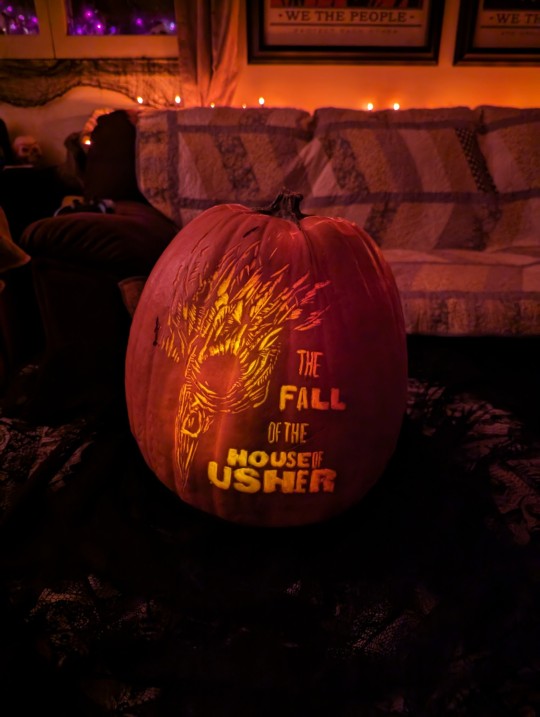
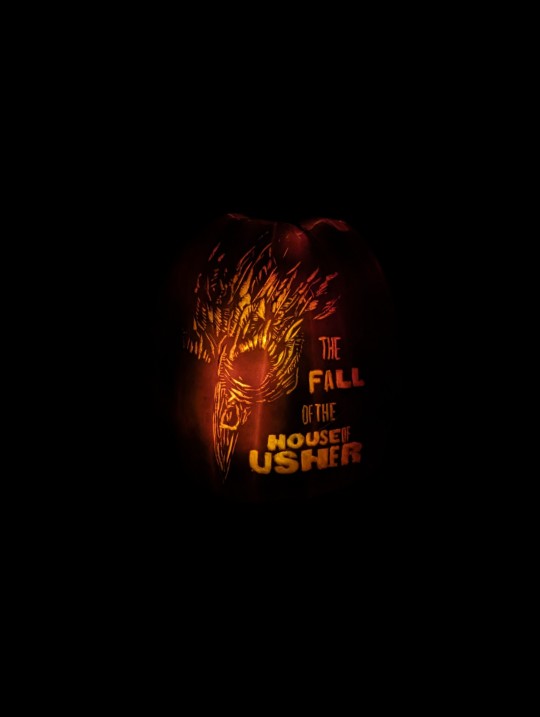
@flanaganfilm I made you and Kate this!! Happy release day. 🎃🎃🎃🐦⬛💛
I'm so excited to watch!
12 notes
·
View notes
Text
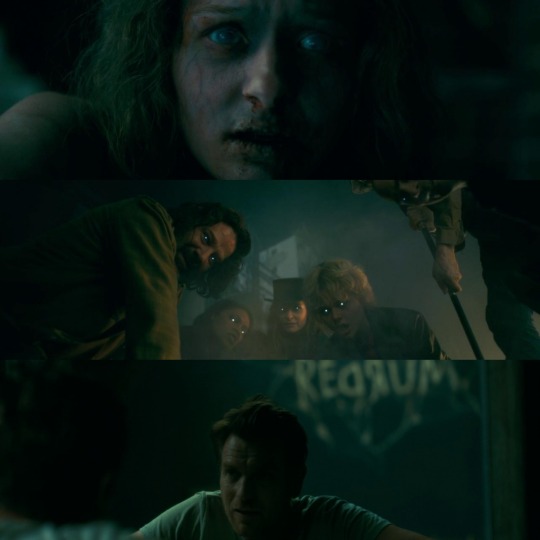
Doctor Sleep (2019, Mike Flanagan)
18/04/2024
#doctor sleep#2019#mike flanagan#the shining#stephen king#ewan mcgregor#danny torrance#Sequel#stanley kubrick#1980#top hat#colorado#2011#new hampshire#alcoholics anonymous#baseball#Indigenous peoples of the Americans#slate#Iowa#telepathy#Baseball glove#jack torrance#Femoral artery#Symphonie fantastique#hector berlioz#United States dollar#rotten tomatoes#metacritic#english language#united states
3 notes
·
View notes
Text
Ok but when Jack says “well pup are you gonna take your medicine?” And you can see the tears and fear welling in Danny’s eyes bc he knows EXACTLY what’s going to happen when he answers honestly truthfully rightfully and he says “no” and he fucking VIOLENTLY knocks the glass away and THE WAY DANNY JUMPS LIKE HES STILL JUST THAT SCARED LITTLE KID TRAUMATIZED BY HIS DAD’S DRINKING AND RAGE LIKE DID YOU BREAK DOWN SOBBING FOR HIM OR ARE YOU NORMAL?????
#also oh my god I’m in it so deep for him I’m not ok: noticed parallels calling back in midnight mass#Erin Greene saying ‘I knew that posturing I knew it’ and DANNY DID TOO#Erin Greene🤝Danny Torrance: Trauma over alcoholic parents I have made the connection#wish I knew how to make gifs god damnit I wanna parallel some shit back to midnight mass SO BAD#dude there’s like a bunch of lines and phrasings that are VERY distinctly Mike Flanagan and I really need to address them#anyway catch me and my heart fucking breaking over a mike flanagan project yet again#doctor sleep#danny torrance#jack torrance#anyway I fucking adore ewan mcgregor god hes so good
102 notes
·
View notes
Text

4 notes
·
View notes
Text
youtube
The video is dedicated to Danny Torrance from Stephen King's "The Shining". I wanted to combine two images of Danny in this video: little Danny from Stanley Kubrick's "The Shining" and adult Danny from Mike Flanagan's "Doctor Sleep". The center of the video is a monologue of an adult Danny as he returns to the place of his trauma, the Overlook Hotel.
#danny torrance#doctor sleep#the shining#stephen king#stanley kubrick#mike flanagan#ewan macgregor#haunted house#ghosts#horror movie#video#fan video#fan vid feed#Youtube#the caretaker#wendy torrance#jack torrance
14 notes
·
View notes
Text
youtube
#redlettermedia#youtube#red letter media#rich evans#jay bauman#gorilla interrupted#half in the bag#mike stoklasa#best of the worst#jack packard#midnight#midnight mass#netflix#mike flanagan#Youtube
5 notes
·
View notes
Text
interview with ahmad from filmupdates - he mentions he's "finishing up" a project in april and i'm pretty sure that means they're completing the handful of episodes of surface s2 that they didn't get to do because of the sag-aftra strike last summer!
JANUARY 26, 2024
Oliver Jackson-Cohen is ready to step out of his comfort zone. The actor, known for his performances in The Invisible Man, Apple TV+ series Surface and Prime Video series Wilderness, has mostly been typecast as intense, overly-confident men who may seem like the poster boys of toxic masculinity. (A GQ article from 2022 is titled “Oliver Jackson-Cohen Is Worried He’s a Little Too Good at Playing Creepy Husbands”) His latest film, the action thriller Jackdaw from director Jamie Childs, is a change of pace for the actor; his character Jack Dawson is more reserved and grounded compared to the roles Jackson-Cohen is known for. And despite his phenomenal turn in the film (the actor delivers a haunting, searing performance that elevates the film from standard action thriller to fascinating character study of man forced into a tragic situation), Jackson-Cohen was initially not convinced he was the right man for the job.
Jackson-Cohen was filming Wilderness in the US when he first crossed paths with Childs, an up-and-coming director who has helmed episodes of shows such as The Sandman and His Dark Materials. Childs knew someone who worked on Wilderness and decided to visit the set for a few days. “We were traveling around America and Jamie sort of came along for the ride,” says Jackson-Cohen. “He started talking to me about Jackdaw. He was like, ‘Yeah. I’m thinking about writing this thing,’ or I think he already had written a first draft of it. We were sort of just talking [about the film] as mates, and then we got back after we had wrapped Wilderness, and he called me and said, ‘It’s done. Can you have a read of it?’ And so I did.”
Clocking in at just north of 90 minutes, Jackdaw is the type of lean, mean action thriller they don’t make much of these days, with a simple premise and a hook that may initially seem familiar and old-fashioned to genre veterans but slowly grows into something more as the film progresses. It follows Jack Dawson, a former motocross champion and army veteran who is now caring for his younger brother. Broke, he agrees to do an open water pick up of a mysterious illegal package in the North Sea. A resulting double cross and his brother’s disappearance set him and his old bike on a violent nocturnal odyssey through England’s northern rust belt.
More John Wick than James Bond, Jack is a haunted man mourning the loss of his career as a motocross champion and struggling to look after his younger brother. With a taciturn, stoic demeanor that rarely betrays his thoughts or feelings, Jack mostly conveys intent and emotions through actions and his physicality rather than his words. Jackson-Cohen was surprised when Childs initially offered him the role of Jack on the spot. “I was like, ‘I really don’t think I’m the right person for you,'” he says. “So I started throwing these ideas out, like, ‘You should get this actor, you should get that actor.’ But Jamie was like, ‘No, it has to be you.’ And because I feel like I’ve never really done something like this, I think I was quite skeptical. But Jamie is such an exciting director and such an exciting new talent; his vision and his references were so bonkers, that I just thought he was going to make something special. The story is a familiar story. It’s not reinventing the wheel in that way, but the way he executes it just felt so incredibly original. I just really think all of us jumped on board because of our belief in Jamie.”
As Jack is a man of a few words, it could have been very easy for audiences to feel apathetic and disconnected from him and the film as a result. However, in Jackson-Cohen’s hands, he comes across as a troubled and tormented man with a tragic past. From the moment he appears on screen, the actor manages to captivate audiences with his raw and emotionally charged portrayal of a man grappling with his inner demons. The actor worked closely with Childs to capture the vulnerability that lies way beneath the surface of Jack’s tough exterior. “The movie was fast-tracked so Jamie wrote the script in the summer and then we were shooting by November,” he explains. “The script that he had sent me was a finished script, but it was an early draft so we sat down and hashed it out over two nights. I was like, ‘We need to bring the aspect of the mother back in,’ and so it was a bit of a scramble to get the character together and ready in time. But Jamie is incredibly collaborative and so we just sort of made some quite quick changes. It did feel important because you’re following this guy that’s mainly in a motorcycle helmet for the bulk of the movie. So we knew we needed to pepper in character. It can’t just be this sort of robotic person, and I don’t think that’s what Jamie wanted either.”
Jackson-Cohen also worked closely with Jenna Coleman, who he also co-starred in Wilderness with, to develop the history of the relationship between their characters before starting production. “We had a day where we sat down with Jenna and went through all the history there of what their relationship was,” he reveals. “And then we just sort of peppered those things in throughout the movie.” While the two play lovers in both projects, their dynamic couldn’t have been more different. “It was amazing,” says Jackson-Cohen of getting to work with Coleman again. “We wrapped Wilderness like four weeks prior and then we were already on set to do Jackdaw. We basically spent 7 months of the last year working together. When you have a sort of shorthand with an actor that you’ve worked with before, or you’re friends with an actor, there’s already a sort of trust there. So I felt really lucky to be able to work with her again.”
While Jackson-Cohen has a vast and incredibly diverse filmography, ranging from the heartbreaking mini-series Man in an Orange Shirt to the 2020 hit The Invisible Man to aforementioned Apple TV+ series Surface, some of his best work is in Mike Flanagan‘s Haunting anthology series. The actor appeared in both seasons of the show, Hill House and Bly Manor respectively, playing two wildly different characters, showcasing his versatility as an actor. In Hill House, he took on the role of Luke Crain, a recovering addict haunted by the traumas of his childhood. He manages to bring a poignant vulnerability to the character, capturing the emotional depth and the complexity of Luke’s journey. In contrast, his role in Bly Manor as Peter Quint is markedly different, showcasing his range as an actor. As the charming but sinister Quint, Jackson-Cohen brings a chilling charisma to the screen, infusing the character with a sense of menace and unpredictability that slowly unravels as his backstory is revealed.
“.
As for what he has planned next, Jackson-Cohen says he’s still figuring out, taking it one step at a time. “I was doing an interview the other day and I was talking about how everyone gets put into a box,” he says. “People love to categorize you as this sort of thing or that sort of thing. The exciting challenge is to keep on pushing yourself in order to change what people think your parameters are, or even what you thought of yourself. It’s an interesting thing. With Jackdaw, when I got the script, I was like, ‘I’m not right for this, this is not in my wheelhouse,’ and Jamie had to really coax me into it, believing that I could do it. And so I think the exciting thing about this job is that you have to keep it as varied as possible for yourself. I’m finishing something at the moment in April and then I’m just going to take a minute and really think instead of just going from job to job to job. Just go, ‘What have I not done and what do I want to explore a bit more,’ you know? You can’t keep on doing the same thing over and over again.”
Jackdaw is now playing in theaters in the UK.
#oliver jackson-cohen#oliver jackson cohen#jackdaw#jackdaw film#surface#surface s2#jack dawson#jamie childs#mike flanagan#haunting of hill house#interview#2024
5 notes
·
View notes
Photo

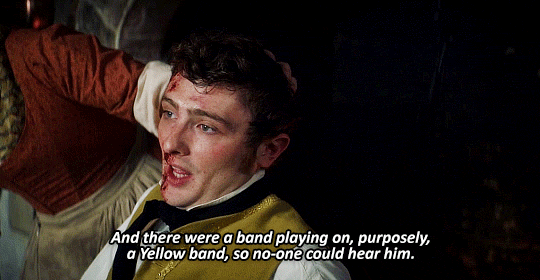


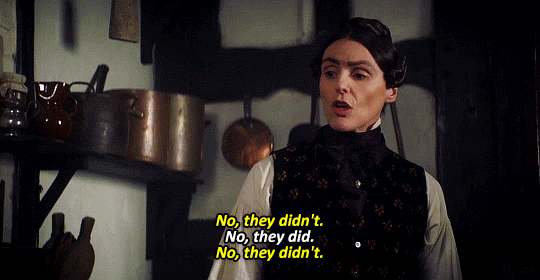
I don't want to hear that repeated.
Gentleman Jack (2019–), 2x05
#Gentleman Jack#Matthew Avison#Anne Lister#Elizabeth Cordingley#Joseph Booth#Rachel Hemingway#Eugénie (Gentleman Jack)#Leo Flanagan#Suranne Jones#Rosie Cavaliero#Ben Hunter#Jessica Baglow#Albane Courtois#period drama#Gentleman Jack 2x05#my gifs
60 notes
·
View notes
Photo






Monday, Spring Birthdays:
- [Sam & GIP] Robert Eaten born.
- [Sam & GIP] Grace Eaten, toddler. Received the Adorable trait.
- Sapphire Flanagan kid, received the Fretful trait and the Perfect Angel aspiration.
- Lance Mills, toddler. Received the Carefree trait.
- Harrison Mills born.
- Ash Eaten kid, received the Fool trait and the Grow Up - Little Rascal aspiration.
#generation 3#eatens#flanagans#mills#s gm eatens#fundielegacies robert jack#fundielegacies grace mary#fundielegacies sapphire diamond#fundielegacies harrison jordan#fundielegacies lance kennedy#fundielegacies ash river#biblethumpersims
3 notes
·
View notes